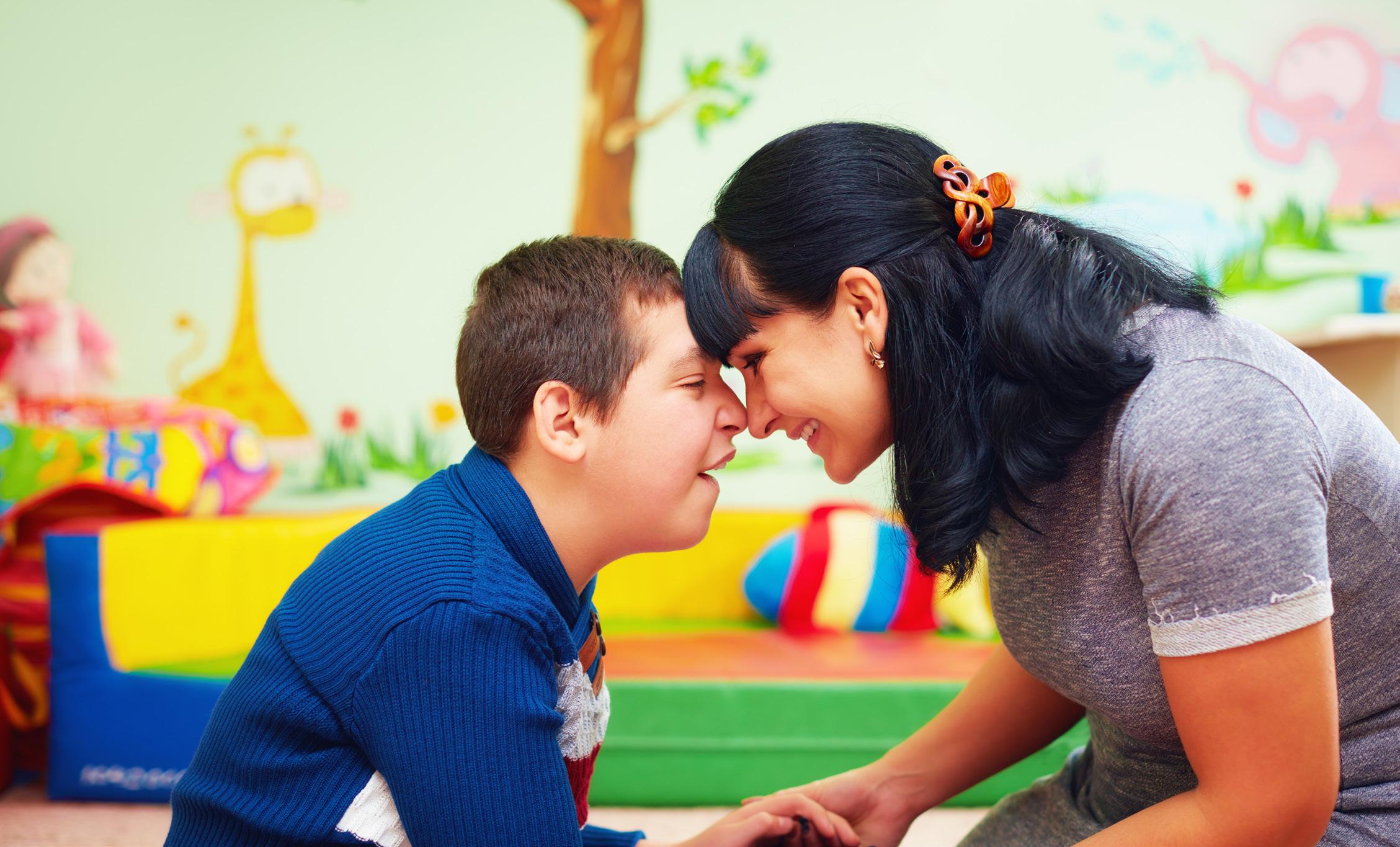
7 minute read
Secrets from a Camp Pro
Why building positive relationships with camp leaders is a great idea!
I’M GOING TO LET YOU IN ON A LITTLE
SECRET: Camp directors and staff just may be the biggest allies that parents and guardians will ever meet! There’s so much about educating and caring for children of all ages in the unique setting of a summer camp that naturally fosters a special partnership between families and the camps they choose for their children.
The Basics
This close bond is readily apparent when parents visit camp, especially parents of established campers who have several summers under their belts. What you see is a lot of hugging, thanking and celebrating:
hugging because adults grow close after years of working together to help raise a child; thanking because camp people are truly grateful to have the trust of families and because families are equally grateful for what camps provide; and celebrating because camp is finally happening –and camp is a special, unique and fun part of each child’s life.
Camps frequently succeed in inspiring campers to accomplish what families and schools can’t or don’t. It happens because camps offer problem-solving, collaboration and support through campers’ growing pains that are inevitable in the journey through childhood and adolescence. For families, having this kind of an ally is invaluable, especially in today’s world where it sometimes seems like there’s more judgment and criticism of parents than ever before.
It’s well worth it to establish and cultivate relationships with your child’s camp. But, what’s the best way to go about that – with a day or overnight camp – when the entire point is for a child to be independent at camp for a certain period of time? What’s the appropriate role for families to play?
The whole point of camp is to provide children with a safe and fun learning opportunity that they can navigate by themselves and with the guidance of camp personnel. However, this cannot happen without mutual trust and respect or a fundamental understanding between the adults at home and the adults at camp. Campers often
don’t realize that parents and guardians have an enormous responsibility in setting children up for success before they go to camp, while they’re there and after they return home. Trust me, camp professionals realize this!
Camps have an equally vast responsibility to communicate clearly with families as they function in loco parentis, which is Latin for “in the place of a parent.” The reality is that while camps are functioning in the place of parents, they are reinforcing many family values and lessons while also mentoring, teaching and helping children grow in amazing new ways that complement what home and school environments provide.
Parents and guardians definitely need to forge their own separate relationship with the camp while they let the child’s experience unfold independently. This can get a little tricky; and it’s not uncommon for well-meaning moms and dads to interfere. By “interfere,” I mean by stepping on the toes of either the child or the camp people – or worse, both!
Forging a successful adult relationship with a camp is not unlike initiating and nurturing other important, healthy relationships in your personal and professional life. It involves: • communicating clearly and honestly; • listening carefully, striving to understand and accept; • spending time together when needed; • taking appropriate risks; and appreciating what’s possible with collaboration and mutual trust and respect.
Don’t worry! It’s easier than it may seem. My point is that it’s worth it to coordinate efforts on the team of adults helping your child to grow up. How much time and energy you invest will vary depending on how much time your child will attend camp this summer and in future summers. If you are choosing a one-time, one-week gig,

BELMONT HILL SCHOOL
SUMMER PROGRAMS
ACADEMICS AND SPORTS FOR BOYS AND GIRLS AGES 6-17
Classes and workshops for children, teens and adults!
Math • Science • English • Test Prep • Art • Baseball • Basketball • Field Hockey • Flag Football • Multi-Sports • Lacrosse • Soccer • Strength & Conditioning
www.belmonthill.org/summer-programs 350 Prospect Street, Belmont, MA • 617-993-5215 June-August 2019





ArtVentures Jewelry & Metals Painting Drawing Pottery Mixed Media P Ph hototo ogrgra aphphy y Comics And More!




brookline arts center 86 Monmouth Street Brookline, MA 02446
you may not invest the same kind of time in the relationship as the parent of an 8-year-old who is likely to attend overnight camp all summer long for the next eight summers or the preschool-aged day camper who will return summer after summer for a decade or so.
Pointers for Partnering with a New Camp
You know quite a bit about this camp – enough to entrust the care and education of your child for a certain number of weeks. Focus on why you chose it. Think about the things you really like. As an insider now and a member of the camp community, expect to take an active role in the partnership.
1The camp will likely send you many messages about what’s next. They are probably ramping up for camp in some fun ways, and they’ll invite you to join the excitement via social media, their website or an open house. Read and respond to what they send! This will help you better understand the camp and their way of doing things. Whether they are counting down the number of days until camp or explaining the nuances of traffic patterns or bus logistics for day camp drop-off, pay attention to their suggestions. Camps are great at breaking down large projects to a manageable size for their campers, and they do it well for camp families, too. Camps excel at being prepared and ready for what’s next. Don’t wait until the last minute to get ready for camp. Follow the camp’s lead.

2The camp will request a lot of information from you. They are not trying to torture you! In fact, they spend tremendous time and energy in the off -season culling through survey results and streamlining their systems to

2019 Session Dates:

June 30 – July 13, 2019 July 14 – July 27, 2019 July 28 – August 10, 2019

minimize what they have to request from families. Two pieces of paperwork to return promptly are health forms and camper questionnaires, which you should complete thoroughly and honestly. If you don’t share important details about your child, the camp cannot serve their new camper properly.
3Remember that camps have their own ways of doing things. Sometimes parents try to treat a camp like a sitter and dictate schedules and procedures. Camps are in the position to meet children’s needs – but they often cannot do things exactly as families do at home. This, by the way, can be an excellent learning opportunity for children to realize that other adults can respond to their needs but may do so differently from their parents and teachers.
4You may be invited to attend an event for parents/guardians of first-time campers. If so, participate! Or you may receive a welcoming phone call. You’ll likely receive a parent handbook of some sort (or a link to it). Read and refer to it; learn everything you can ahead of time.
5Learn what systems are set up for communicating with the camp. Every camp has preferences for the critical communicating that needs to happen before, during and after camp. There’s a lot of parent communication – incoming and outgoing. Familiarize yourself with the camp’s practices and procedures so none come as a surprise during the course of solving a problem. For instance, it’s not good to hear for the first time that the camp discourages or doesn’t allow camper phone calls at the very moment you try to call your camper! Due to schedules and staff availability, some camps might request that parents phone camp administrators or staff at certain times of the day. Following their requests saves everyone a lot of time.
6Communication is the cornerstone of a successful relationship with your child’s camp. Camps have to be extremely intentional about communication with families and strive to streamline and simplify what they request and what they share. Keeping an honest and open exchange of communication is key for developing a relationship that works for you, your child and the camp. Camp staff appreciate it when parents share strategies that work for the child at school and at home, and camp professionals, in turn, may provide insights and suggestions that can revolutionize a child’s school year. ■










